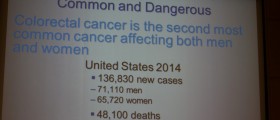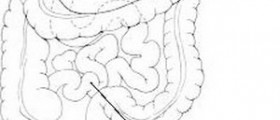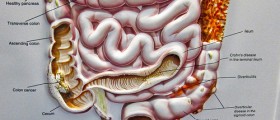
Colitis is a term that describes an inflammation of the colon, often in the large intestine. There are many different types of colitides, and some of them are acute. The inflammation of the intestine is often caused by unknown reasons, and it often manifests in distinct change in bowel habits. Acute colitis is more precisely defined as the swelling of the colon, which develops as a result of irritation at this part of the bigger intestine. The condition is usually diagnosed based on the examination of the body that reveals bloated stomach combined with softness on either or one side of the stomach. Blood tests may also reveal increased levels of leukocytes, indicating the inflammatory process somewhere in the body. The stool test may also reveal the presence of bacteria, parasites and blood.
Symptoms of acute colitis
The first symptom of acute colitis is an abnormal stool pattern. Each individual has a typical stool pattern that may include one, two or three passages per day. When this pattern becomes changed, it may point out to some underlying medical conditions. In cases of acute colitis, the number of stool passages is usually increased, and many other symptoms, such as fever or abdominal pain, may be present. Many acute intestinal infections do not require any kind of treatment and they resolve on their own in a couple of days. However, if no common infection is found and diarrhea persists for more than a week, doctors may start to suspect of chronic conditions of the colon and small intestine. Other symptoms of colitis may include cramping, loss of appetite, urgency and bloating, abdominal tenderness, weight loss, bloody stools and distension.
Causes of acute colitis
As already mentioned, doctors are not always sure about what causes acute colitis. This condition may develop due to several reasons. The most common cause of acute colitis is food poisoning. It develops when food contaminated with bacteria and parasites enters the body. The symptoms usually occur up to 72 hours following the ingestion and maintain for a couple of days.
Prolonged use of antibiotics may also be responsible for acute colitis. Antibiotic treatment is administered for various ailments, including the bacteria-caused food poisoning. Antibiotics usually kill all the bacteria in the bowel, including the beneficial ones, making the substantial change to normal intestinal flora. This often causes acute colitis.
Another reason for colitis may be a blockage in the colon that results from severe constipation and infection of colonic diverticles, a common digestive disease particularly found in the large intestine.

















Your thoughts on this
Loading...